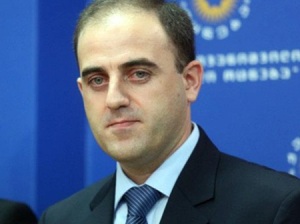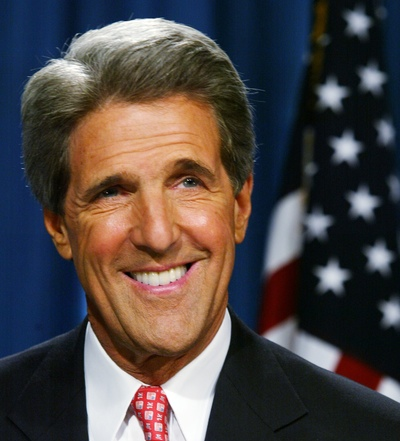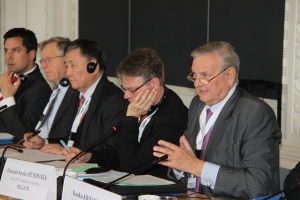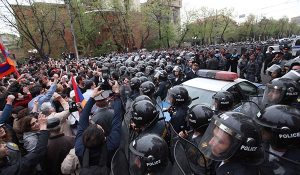
Davit Narmania, Georgia’s Minister
for Regional Development and
Infrastructure
The Georgian government has announced that it will conduct a population census from 5-19 November 2014, and preparations will commence from this year. The Minister for Regional Development and Infrastructure Davit Narmania and the Head of the National Statistics Department Zaza Chelidze told a press conference in Tbilisi last week that special groups of people will go door-to-door to provide preliminary information about the number of persons living in houses. At the first stage, about 4 000 persons will be employed. From November 5-19, the plan will enter the second stage with a complete census of the population. 15 000 persons are being selected to conduct the interviews based on a special questionnaire.
Narmania noted that the government made a decision to conduct an agricultural census along with the population census, which means that along with social and demographic data, information will be gathered about agricultural and industrial activities. The results of the census will be published step by step, and the first results will be made public after six months, Zaza Chelidze said. About USD 10 million will be spent on the census. The last census was conducted in 1989 and found that 5 443 000 people were living in the country, including the population of the breakaway areas Abkhazia and South Ossetia.
According to the population data from 2002, which were published without a census, 4 601 500 people were living in Georgia at the time. Official figures from 2012 show that the population in territories controlled by the Georgian government was about 4.5 million, while in 2011 it was estimated to be about 4,479 000. However a number of NGOs claim that these figures are inflated and that the population of Georgia may be a million less than is claimed.
Georgia has not had a population census for a long time and the census is both a necessary and a sensitive exercise. Results of the census are likely to help build a picture of the accuracy of Georgia’s voting list, which in the past had proved to be a problematic issue during elections. The census will be an important tool in highlighting sensitive issues in Georgian society, including the issue of an aging population and birth rates amongst different ethnic groups, as well as the actual size of ethnic communities. It is therefore essential that the census be conducted with as much accuracy and professionalism as possible and that the data will be released transparently and in a timely fashion.
Source: CEW Staff report with dfwatch.org





 COMMENTARY:
COMMENTARY: